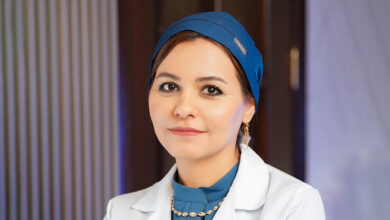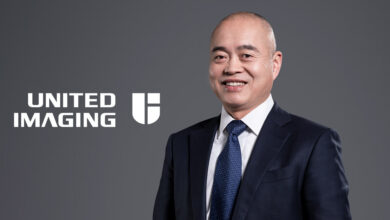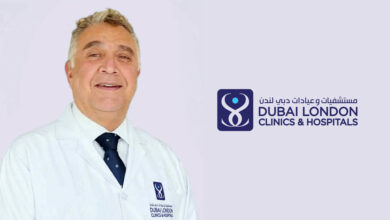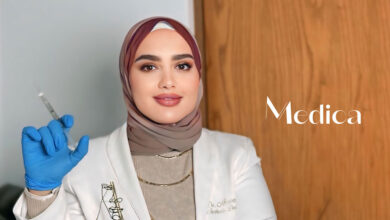“We are working to change the story of cancer in the MENA region”
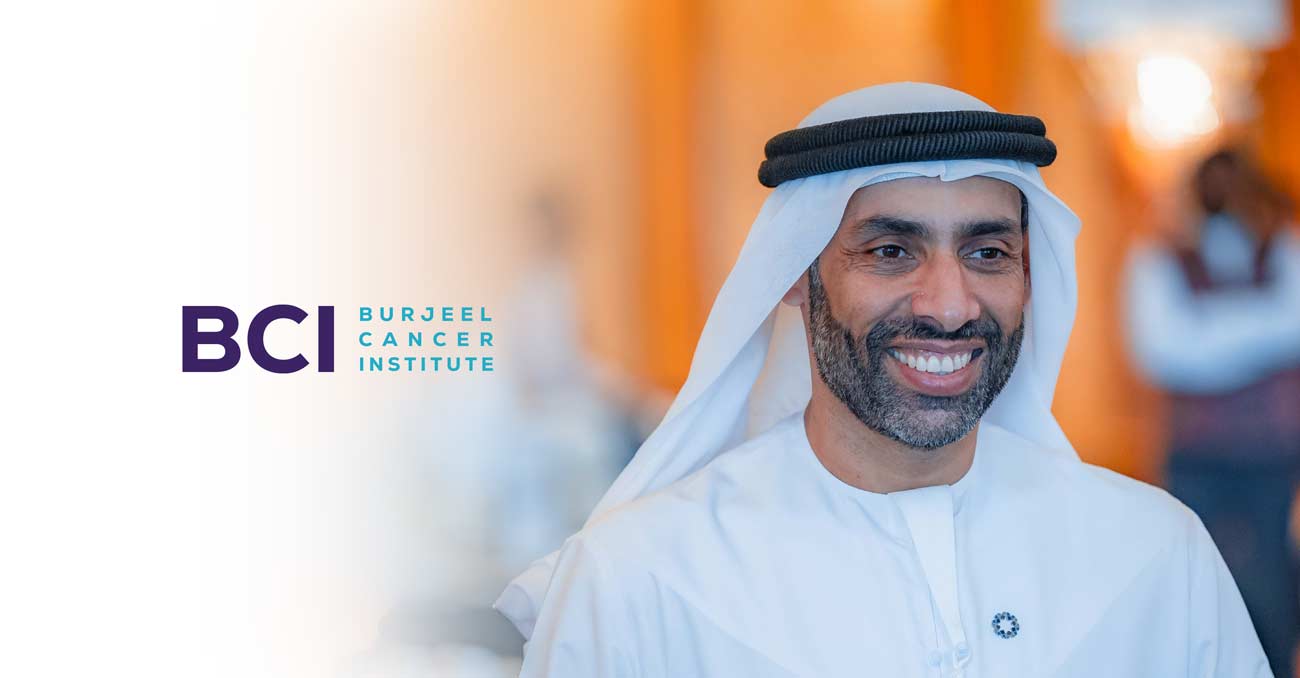
In an era where cancer care is rapidly evolving, few voices resonate with as much clarity and purpose as that of Prof. Humaid Al Shamsi, CEO of Burjeel Cancer Institute (BCI) and one of the region’s most distinguished oncologists. From his pioneering role in advancing oncology services across the UAE to his groundbreaking academic appointments at Harvard Medical School and the Dana-Farber Cancer Institute, Prof. Al Shamsi embodies the fusion of global excellence and national commitment. In this exclusive conversation with Hospitals Magazine, he reflects on his recent meeting with His Highness Sheikh Mohamed bin Zayed Al Nahyan, discusses the UAE’s ambitious vision for healthcare, and shares how Burjeel Cancer Institute is redefining the future of oncology, through innovation, accessibility, and compassion. From precision radiotherapy and cutting-edge liver cancer procedures to women-led breast care initiatives and regional expansion into Oman, Prof. Al Shamsi reveals how his team is reshaping the narrative of cancer in the Middle East and beyond.
You were recently received by His Highness Sheikh Mohamed bin Zayed Al Nahyan. What did that meeting mean to you, and what does it signify for healthcare in the UAE?
It was a profound honor to be received by His Highness Sheikh Mohamed bin Zayed Al Nahyan, President of the UAE. The meeting was both a personal and professional milestone that reflected our leadership’s deep commitment to advancing science, education, and healthcare in the country. His Highness graciously congratulated me on my appointment as Visiting Professor at Harvard Medical School and Visiting Scientist at Dana-Farber Cancer Institute in Boston.
To be the first physician from the Gulf region to receive these academic titles was an emotional moment for me. What made it even more meaningful was sharing it with our leadership, whose vision and trust make such achievements possible.
During our discussion, I expressed my gratitude for His Highness’s continuous support to all citizens and residents of the UAE and shared with him the latest developments in the cancer care sector. His Highness emphasized the importance of continuing to advance this critical field and reaffirmed his guidance to ensure that the UAE upholds the highest international standards of care for all cancer patients. For me, this meeting symbolized not only recognition but also responsibility. It was a reminder that our collective mission is to serve people, raise standards, and build a healthcare system that reflects the UAE’s values of excellence, compassion, and innovation.
How does that national vision shape your mission at Burjeel Cancer Institute?
Our mission at Burjeel Cancer Institute is to make world-class, compassionate cancer care accessible to everyone in the UAE and across the region. We aim to detect cancer early, treat it precisely, and walk with the patient through recovery and survivorship. Achieving that requires an integrated approach where prevention, diagnosis, treatment, and long-term support are all connected. We have built that ecosystem within BMC and extended it across our network in Abu Dhabi, Dubai, Sharjah, Al Ain, Al Dhafra, and now Oman.
Burjeel Cancer Institute has become one of the GCC’s largest dedicated cancer networks. What has driven that growth?
When a patient reaches BCI, they enter a pool of specialists with global expertise. The patient gains from the collective expertise of our multidisciplinary team comprising more than 70 specialists. This allows us to provide more personalized care and faster access to treatment. It also reduces waiting times and ensures every patient benefits from coordinated, evidence-based decisions. We now care for more than 5,000 oncology patients each year across our network and deliver over 10,000 radiotherapy sessions annually.
The Burjeel Breast Center has gained attention for its women-led approach. How has it changed the experience for patients?
The Breast Center is designed as a one-stop destination where women can undergo screening, diagnostics, and consultation all in one visit. We introduced same-day appointments and, when feasible, same-day diagnosis to reduce anxiety and uncertainty. The center uses advanced technology such as the HOLOGIC 3Dimensions system, which improves detection accuracy even in dense breast tissue. Most importantly, the environment is empathetic, patient-friendly, and designed to make every woman feel supported and safe.
Radiation therapy is a cornerstone of modern cancer treatment. How has BCI advanced in this area?
We have invested heavily in precision radiotherapy. Our Elekta Versa HD systems allow us to deliver highly targeted treatment while minimizing exposure to healthy tissue. Burjeel Cancer Institute is now an Elekta Reference Site and holds Novalis Certified Radiosurgery status, which places us among the region’s most advanced centers. Our radiation oncologists, physicists, and therapists work closely to tailor every plan to the patient’s specific needs.
BCI recently introduced Hepatic Artery Infusion Pump procedure. What does this innovation mean for patients?
This is a highly specialized treatment for patients with liver-dominant metastatic cancer, especially from colorectal origins. By infusing chemotherapy directly into the hepatic artery through an implanted pump, we can achieve much higher concentrations of the drug where it is needed most, while limiting side effects to the rest of the body. For select patients, it opens new possibilities that were previously unavailable in the region. It reflects our goal of offering every patient the most advanced options available anywhere in the world.
There’s been much discussion about multi-cancer early detection tests. How is BCI approaching these developments?
We are optimistic but careful. Established screening for breast, colorectal, cervical, and lung cancers remains the foundation of early detection. At the same time, we are evaluating emerging tools such as multi-cancer early detection (MCED) blood tests through our clinical committees.
TruCheck is a test we introduced recently for cancer screening. Our responsibility is to validate new technology before integrating it into routine care, ensuring that it truly benefits patients and aligns with international evidence.
The breast cancer campaign reached thousands of women across the UAE. Why is community outreach important to you?
Access and awareness are the first steps to saving lives. Our Mobile Mammogram Truck and community initiatives bring mammography and education directly to workplaces and neighborhoods. Many women postpone screening due to time or travel barriers. When we bring services to them, participation increases and cancers are caught earlier. Beyond detection, these campaigns are about empowering women with knowledge and reassurance. This is an ongoing activity for us, throughout the year.
BCI has now expanded into Oman. How does regional integration enhance patient outcomes?
Cancer doesn’t recognize borders, so our care network shouldn’t either. By opening Burjeel Cancer Institute Muscat, we can share expertise, unify treatment protocols, and provide continuity of care for patients in Oman. The collaboration allows us to deliver consistent quality across the region and supports national efforts to strengthen local oncology capabilities.
What are your priorities for the next five years?
Our focus is on accelerating access, advancing research, and training the next generation of specialists. We’re expanding clinical trials and academic partnerships to make the UAE a hub for oncology innovation.
We also want to grow our education and fellowship programs so more Emirati and regional professionals can lead in this field. Success for me means seeing more patients cured, more families supported, and more hope delivered, right here in the region.
What keeps you personally motivated in this mission?
The patients. Every statistic hides a human story, Someone’s parent, sibling, or child. Seeing them recover, or even seeing their courage in adversity, reminds me why this work matters. Our goal is not only to treat cancer but to change the experience of it, to make every patient feel seen, cared for, and never alone in their journey.











